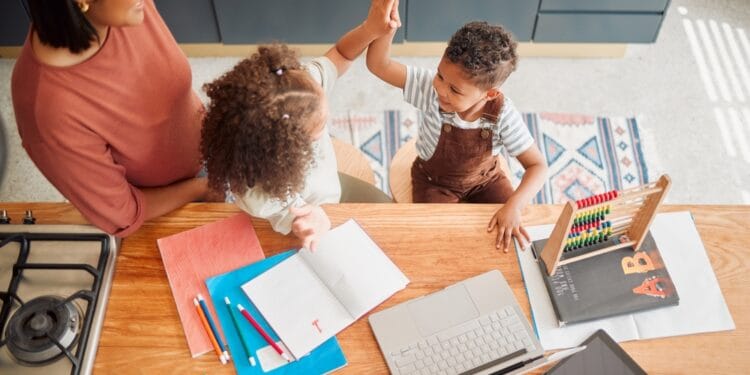Play is an essential aspect of early childhood development. It is a primary mode through which young children explore the world, develop crucial skills, and build foundational experiences that will shape their future learning and growth. It encompasses a variety of activities that promote physical, emotional, cognitive, and social development. Understanding the significance of play and integrating it into early childhood education and daily routines can yield numerous benefits for young children.
Physical Development
One of the most apparent benefits of play is its contribution to physical development. Through active play, children develop gross motor skills involving large muscle movements like running, jumping, and climbing. These activities strengthen their muscles, improve coordination, and enhance physical fitness. Fine motor skills involving smaller movements, such as picking up objects and drawing, are also honed through play. Activities like building with blocks, playing with clay, or threading beads improve hand-eye coordination and dexterity.
Moreover, physical play promotes healthy growth and development. It encourages children to be active, combating the risks of childhood obesity and related health issues. Regular physical activity through play helps establish lifelong exercise and healthy living habits, laying the groundwork for a healthier future.
Cognitive Development
Play is a critical driver of cognitive development in early childhood. It stimulates brain development and helps children develop problem-solving skills, creativity, and critical thinking. During play, children experiment, explore, and discover new concepts, which enhances their understanding of the world around them. For example, when a child builds a tower of blocks, they learn about balance, gravity, and cause-and-effect relationships.
Pretend play or imaginative play, is particularly beneficial for cognitive growth. Children engage in pretend play and use their imagination to create scenarios, roles, and narratives. This type of play fosters language development as children communicate their ideas and interact with others. It also promotes abstract thinking and the ability to understand symbols, foundational skills for later academic learning, such as reading and mathematics.
Emotional Development
Play is a powerful tool for emotional development, helping children understand and express their feelings. Children learn to cope with emotions, manage stress, and build resilience through play. When children engage in role-playing or pretend scenarios, they often act out different emotions and situations, which helps them process their own experiences and develop empathy for others.
Play also provides a safe space for children to explore their fears, anxieties, and frustrations. For example, a child might reenact a doctor’s visit during play to gain control and understanding over a potentially frightening experience. Working through emotions in a playful context, similar to how they engage with short stories, supports emotional regulation and self-awareness.
Social Development
Social play is crucial for the development of interpersonal skills and social competence. When children play together, they learn to communicate, negotiate, share, and cooperate with others. These interactions teach them about social norms, empathy, and conflict resolution. Group play activities, such as team games or collaborative projects, encourage children to work together towards common goals, fostering a sense of community and belonging.
Through play, children also develop their ability to take turns, follow rules, and understand different perspectives. These skills are essential for successful social interactions and form the basis for building healthy relationships throughout life. Playdates, group activities, and preschool environments provide ample opportunities for children to engage in social play and practice these skills.
Enhancing Learning and Academic Success
Playing in early childhood education has been shown to enhance learning and academic success. Play-based learning approaches, which integrate play into the educational curriculum, promote a more engaging and effective learning experience. These approaches recognize that children learn best when actively involved and enjoying themselves.
For example, using games and playful activities to teach concepts such as numbers, letters, and shapes can make learning more enjoyable and memorable. Children are more likely to retain information and develop a positive attitude towards learning when it is associated with fun and play. Play-based learning also encourages curiosity, exploration, and a love of learning, which are critical for lifelong educational success.
Supporting Overall Well-being
Beyond its developmental benefits, play supports the overall well-being of young children. It provides an outlet for energy, reducing stress and promoting relaxation. Playful activities help children release pent-up emotions and frustrations, improving their mental health and well-being. Additionally, play fosters a sense of joy, satisfaction, and accomplishment, which boosts self-esteem and confidence.
Parents, caregivers, and educators play a vital role in facilitating and encouraging play. Creating a safe and stimulating environment with various play materials and opportunities is essential, like designing an effective childcare logo representing a nurturing and educational space. Adults can support play by participating, guiding, and observing without dominating, allowing children to explore and express themselves.
Conclusion
In conclusion, play is a fundamental aspect of early childhood development that impacts physical, cognitive, emotional, and social growth. It is a natural and enjoyable way for children to learn, explore, and develop essential skills. Recognizing the importance of play and incorporating it into early childhood education and daily routines can provide young children with a strong foundation for future learning and well-being. As parents, caregivers, and educators, fostering a playful environment and valuing the role of play can significantly enhance the developmental outcomes of young children.






























